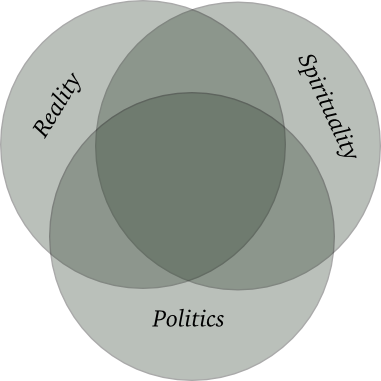THOSE OF YOU WHO have been following this series will recall that in the previous post I suggested that the question of whether humans are bad in some sense depends on our model of morality.

But before looking at the main models of morality, we probably should ask why we need morality at all.
This is a particularly interesting question in light of current political alignments in America.
The conservative coalition is, at the moment, thoroughly divided on the question.
The two main groups which form the conservative voting block are Christian fundamentalists of one stripe or another, and Free Market fundamentalists of one stripe or the other.
The Christian fundamentalists believe that morality of the kind I have been talking about in this series—top-down, authoritarian, priest/king morality—is a necessary, desirable, and inescapable part of the world.
They believe that every person has a God-given responsibility to do and not do what God requires—as interpreted by their particular church—and that the world will only function well if we are all selfless and obedient to the moral law.
Because of this they even believe that God's laws—which is what they mean by "morality"—should be enforced by the government: that laws should be on the books against abortion, homosexual marriage, and various other activities depending on their particular theology.
On the other hand, the Free Market fundamentalists believe that selfishness is a virtue in itself—that when everyone acts in their own best interest, the Free Market will magically produce a world which is as close as we can get to Utopia.
Because of this, they believe that morality should be left out of our laws altogether: that there should be no enforcement of care for the poor, or fairness in the workplace, or controls on the quality of the products they offer consumers.
These two factions have only been able to work together because they have divided up the territory.
Christian fundamentalists have tacitly agreed to ignore the fact that the laws which God is most interested in, according to their own scriptures, are economic: concern for the poor and disadvantaged, income redistribution, etc.
They have agreed to ignore the fact that, in their scriptures, these "moral laws" were actually the laws of the country of ancient Israel.
Free Market fundamentalists have tacitly agreed to return the favor by ignoring the fact that laws regulating the private lives of citizens violate their basic objection to government interference.
So the Christian fundamentalists don't object to corporate wealth and power, to the neglect of the poor, or unfair distribution of wealth, and Free Market fundamentalists don't object to laws governing private sexual behavior.
It's not clear how long this uneasy truce can be maintained, but the division between them is a perfect illustration of the question I asked earlier:
Do we need morality at all, or would we be better off if
everyone simply acted in their own best interest?
If you think about that question for very long, you will see that it makes three questionable assumptions:
- That if humans were left to their own devices, they would act selfishly,
- That our own best interests don't include some sort of morality, and
- That we have a choice.
I'll have more to say about the first two assumptions later, but for now let's focus on whether we can choose between living with or without morality.
Try to imagine navigating the world without any sense of what you ought, or ought not, to do.
Try to imagine navigating the world without ever asking a "should" or "ought" question.
Try to imagine moving through life without ever considering the effects of your behavior on others.
If you can seriously do that, you are probably a sociopath.
The fact is that morality, in one form or another, is simply a given part of being a normal human.
So the question before us is not "Shall we have morality?" but "What kind of morality shall we have?" or, perhaps more sensibly, "What is morality, really?"
More on that next time.
Next: Looking for an alternative approach...






